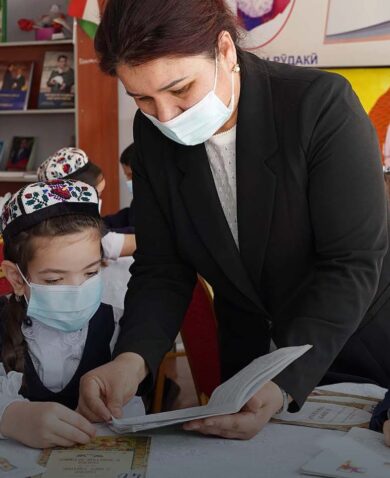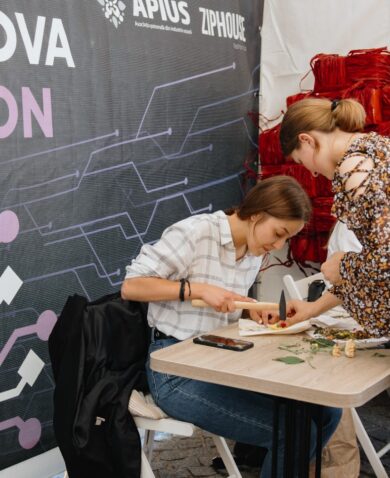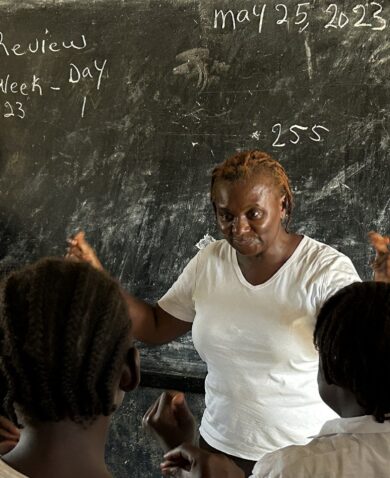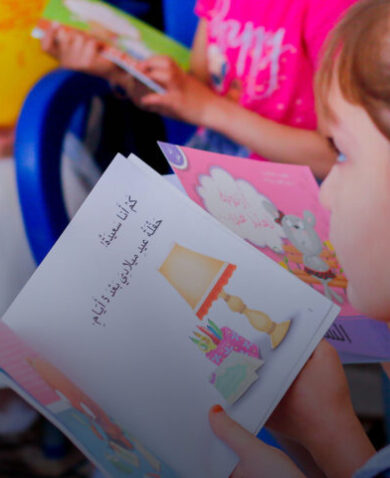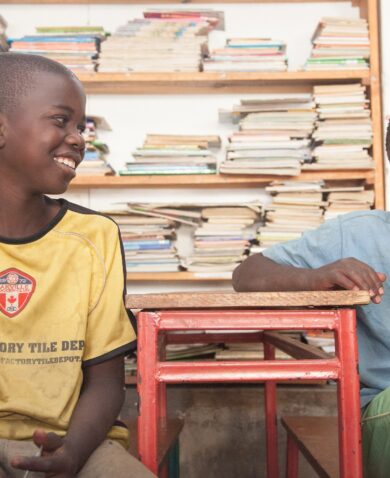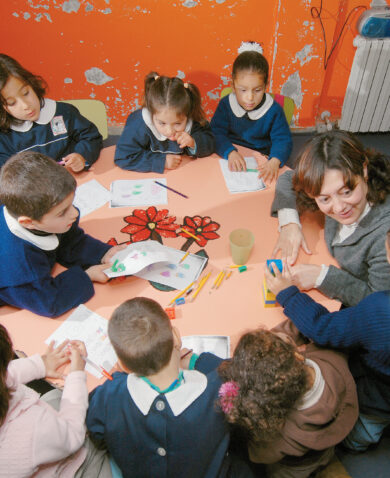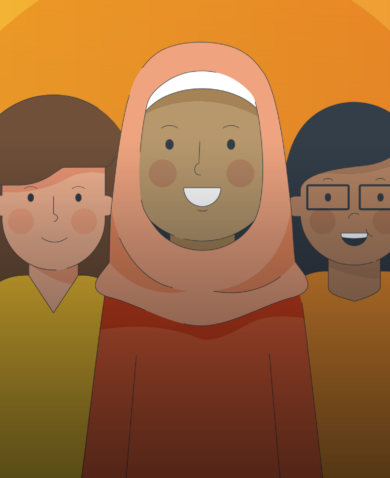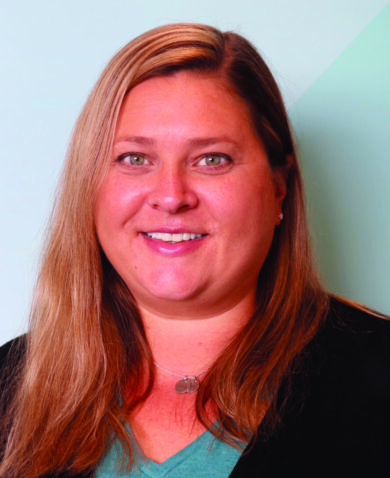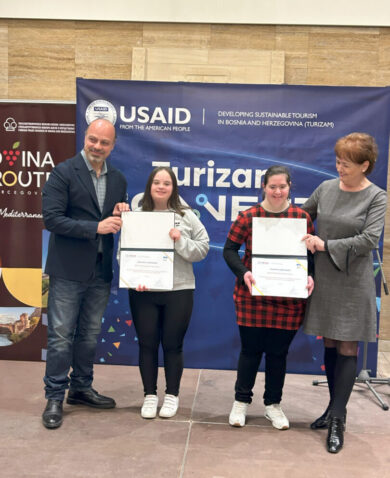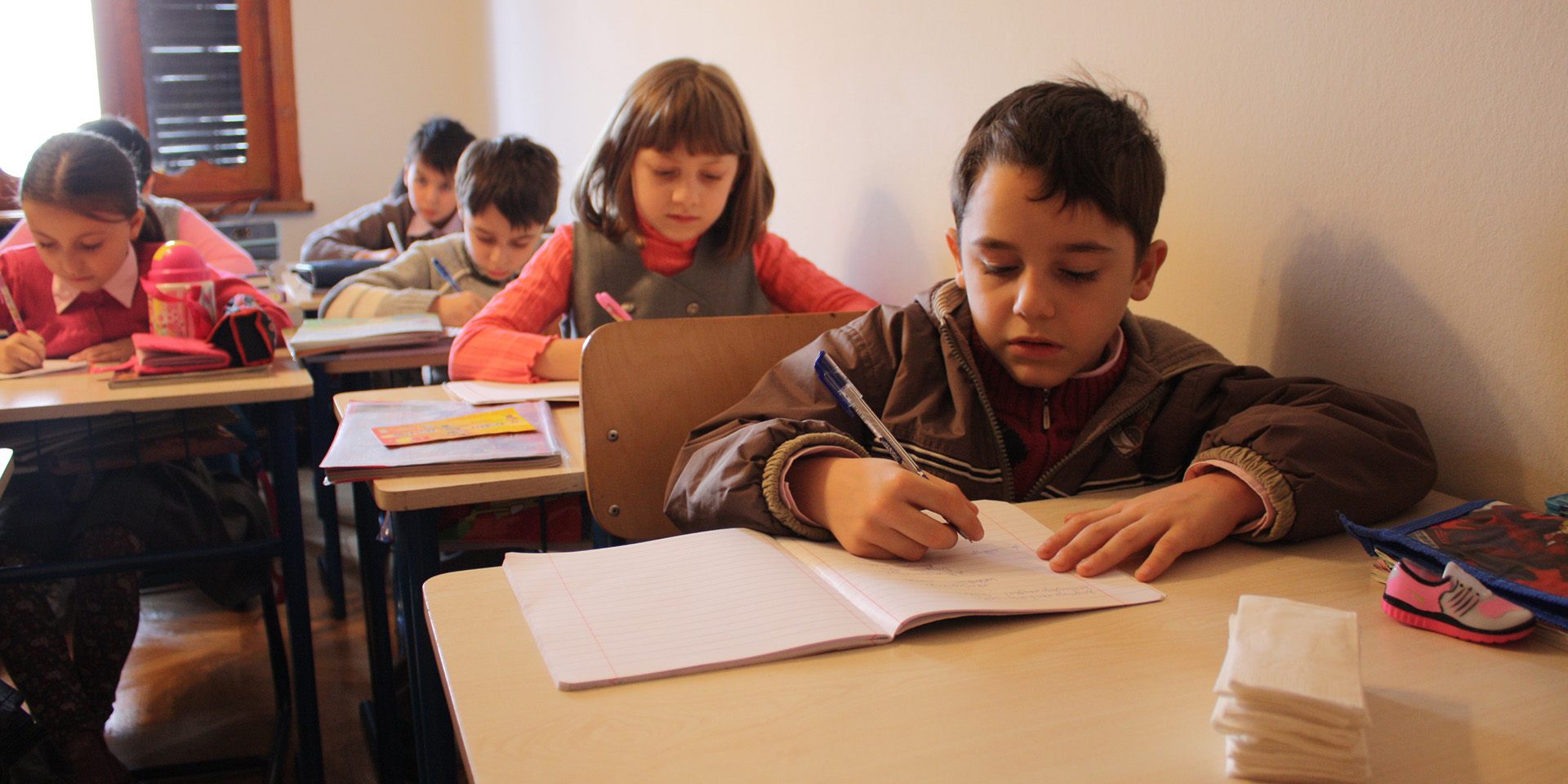
Business Is for Kids Too: What Business Leaders Are Teaching Young Students in Georgia
March 29, 2016 | 3 Minute ReadGeorgian primary students engage in an interactive classroom exercise designed to teach basic business skills. Traditionally, the country's primary students do not learn about business.
Is business just for adults? In many countries, the business community’s involvement in education is limited to the secondary or post-secondary levels. Under USAID’s Georgia Primary Education (G-PriEd) program, however, we are trying another approach: engaging local businesses in primary education (Grades 1-6) with the goal of equipping children with basic business skills that will help them realize their full potential as adults.
There are many reasons to introduce basic business skills to children instead of waiting until they’re adults. International research and experience links this practice to improvements in children’s self-confidence, risk-taking, problem-solving, analytical skills, proactivity, and creativity. Moreover, children are receptive to learning about business. As Yana V. Rodgers, co-founder of the Rutgers University Project on Economics and Children, said, “Decades of research in economics, education, and early childhood development have shown that young children enter the primary grades with an experience-based knowledge of economics, and they are quite capable of learning basic economic concepts during the primary grades.” From an economic perspective, the reason is simple: a business-savvy workforce is better for a twenty-first-century economy.
Despite the benefits, however, it’s uncommon for primary schools in Georgia to teach business skills. The Georgian economy is still transitioning from a post-Soviet economic structure to a Western-oriented, private sector-driven one. This change simply takes time, and the education system will need to change along with it to address skills gaps. It is encouraging that discussions have recently begun about introducing financial literacy and entrepreneurship in primary grades. Only a few months ago, Prime Minister Giorgi Kvirikashvili spoke about introducing this type of education into schools. In addition, the Ministry of Education and Science is working on “Me and Community,” a social sciences-based curriculum for primary grades. But there is still much work to be done.
Last year, the G-PriEd team did something exciting and took one of Georgia’s first steps toward actually integrating basic business skills into classrooms. Essentially, we adapted Junior Achievement’s internationally tested business skills curricula to the Georgian context. Tested in more than 123 countries, the curriculum includes seven business skills modules for Grades 1 – 6 and uses interactive activities to make learning about topics like financial literacy, entrepreneurship, and workforce readiness fun. Then we trained about 450 teachers and over 150 high-performing employees and owners of Georgian companies to teach the curriculum and supplied them with high-quality teaching materials.
A few weeks ago, we visited a school in Tbilisi to see the new program in action. Nana Mikashavidze, founding CEO of a company called TBC Leasing, was there teaching sixth graders about entrepreneurship. Nana began by sharing her story. She got her start helping local banks make loans, worked her way up to deputy director of corporate banking one of the country’s largest banks, and finally founded her own company. After sharing her story, Nana led the students in a game called “Get Connected,” in which they collected special points while learning about technology, workers, and the needs of businesses and industries.
We were encouraged to see just how engaged the students were throughout Nana’s lesson. Evidently, Nana was encouraged too. After the class, she said to us, “The teaching experience has been so inspiring that I am seriously considering it to become my other profession. Students are really engaged, and I feel that I am making a difference.”
It was great to hear. For future entrepreneurs and professionals, exposure to leaders like Nana may provide just the spark they need to participate in the economy and realize their potential in life. Under G-PriEd, the business skills activity could reach more than 9,000 students across Georgia, possibly more if the Ministry of Education and Science scales up the approach.
Business is for kids too, and you never know who is in a classroom. It may be that the next great entrepreneur or executive is sitting right there, and all she needs is a nudge in the right direction.





